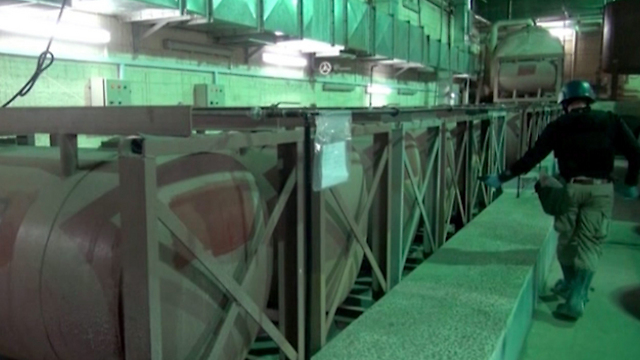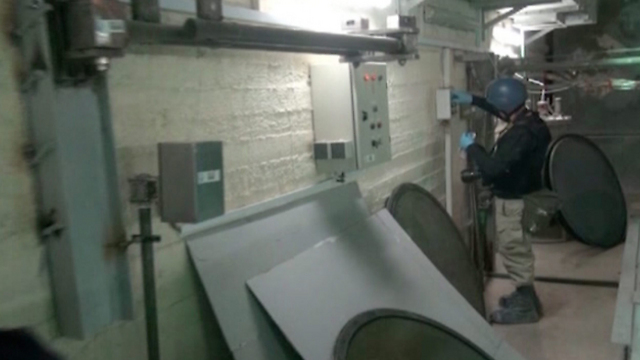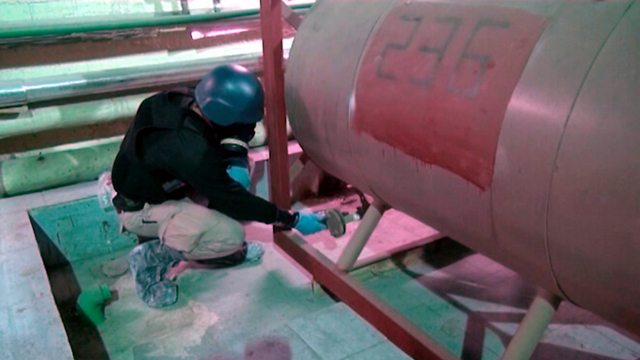
An Israeli senior defense official said Monday that Israel has evidence that Syrian President Bashar Assad's army used chemical agents against opposition rebel forces in two attacks on March 27, using a "neutralising chemical weapon," in the Jobar neighborhood in eastern Damascus.
The Israeli report is consistent with claims by the Syrian opposition that Assad used poison gas in that area, showing footage of an apparently unconscious man lying on a bed and being treated by medics.
The footage and the claims could not be independently verified due to security restrictions on reporting in Syria.
Videos uploaded online document wounded civilians from one of the alleged attacks, and the health minister of the opposition's temporary government reported two deaths and 20 injuries in connection with the incident.
"The substance that the Syrian police force used caused breathing problems," added the Israeli source. "They have no medicine except for basic respiratory aides."
One opposition group, the Syrian Revolutionary Coordinators Union, said that all those affected by the gas were "in a good condition". There has been on-off fighting between rebels and government forces in Jobar this year.
Related stories:
- Palestinian report: Israel strikes Syria's Latakia
- Russian report: Syrian rebels planning chem. attack on Israel
- UN reports: Chemical weapons used in Syria are from army stockpile
In recent weeks the Syrian opposition forces have also charged the Syrian police of using chemical weapons in the area of Lattakia.
Bashar Jaafari, Syria's representative at the UN, attacked the rebels' claims, stating that because they are planning the use of nerve gas in disputed areas, their claims are only to build a case for their own chemical attack on Syrian government forces.
UN representatives are currently working to dismantle and ship out Assad's chemical weapon stockpile as part of an agreement reached in September when an independent UN investigation found that the government had used chemical agents as weapons in Jobar in August and in several other locations, including in the rebel-held Damascus suburb of Ghouta, where hundreds of people were killed.
The inquiry was only looking at whether chemical weapons were used, not who used them. The Syrian government and the opposition have each accused the other of using chemical weapons, and both have denied it.
The Ghouta attack sparked global outrage and a US threat of military strikes, which was dropped after Assad pledged to destroy his chemical weapons.
But the Syrian government failed to meet a February 5 deadline to move all of its declared chemical substances and precursors, some 1,300 tons, out of the country.
The defence official said the material used on March 27 was not on the list of chemicals due to be removed.
Syria has since agreed to a new timetable to remove the weapons by late April.
Syria's three-year civil war has killed more than 150,000 people, a third of them civilians, and caused millions to flee.
Reuters contributed to this report.


















